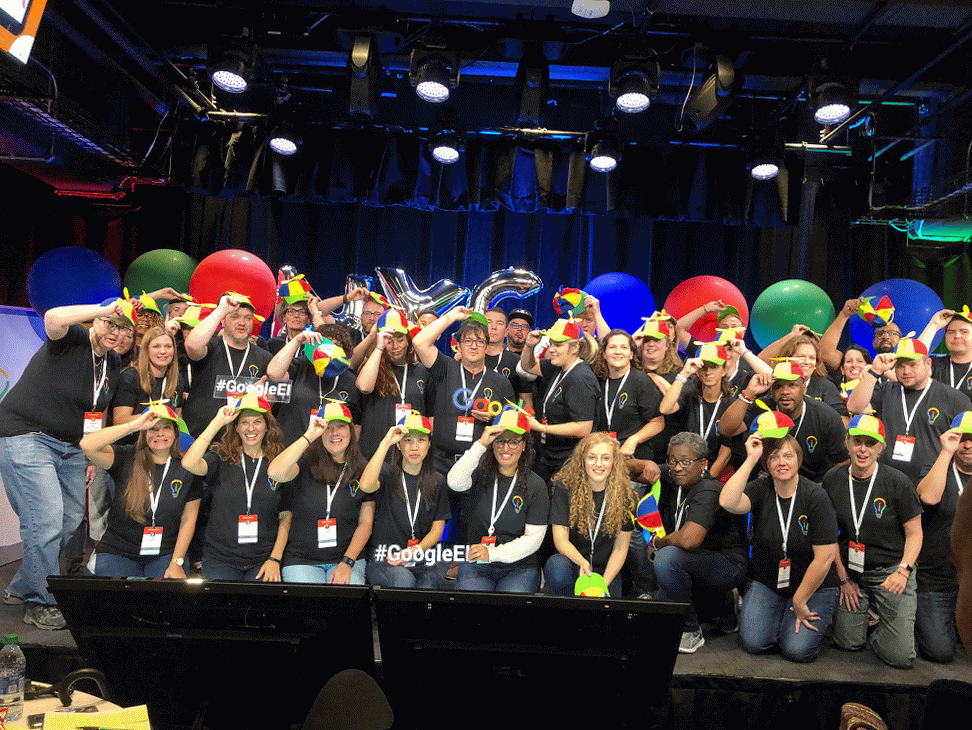Reflections on the #NYC19 Google Innovator Academy
- Cara Flodmand

- Oct 16, 2019
- 4 min read
The Google Innovator Academy is a magical place. It's due in part to the culture of Google, attitude of innovation, and the friends that become family. I had thought it would be an amazing experience to be an Innovator when I first heard about the Google badges back in 2010, but I never really thought I would have the chance to attend. I decided to apply this year after finishing graduate school and looking for a way to continue pushing myself into new ways of thinking. That, coupled with the fact that I think my colleagues were tired of me saying "I have an idea!" This would give me an opportunity to share that outside of our tiny basement office.
Applying was a bit of an undertaking. I wasn't really sure what I was doing so I tuned into all of the YouTube live streams before the application was due to make sure I was on the right track. My introvert heart was panicked at the video creation, but with some help I was able to get it done. After more takes than I'd like to admit. After submission, the wait was relatively short, only two weeks, but the last day of waiting for the email for acceptance or trying again was agonizing. Around 8:45 pm, I got an email that I wasn't accepted. I was ready to go back to the drawing board and consider what I could change for 2020. But then, about two weeks later I was sitting at EdCamp Jersey Shore and I got an email and Twitter DM that someone had dropped out of the Academy and I was next on the list and now accepted. I was shocked and excited, but feeling a bit like an outsider like I got in on a technicality.
I learned a short time later that this is called "impostor syndrome" and we started talking about it right away in the 50 person hangout chat that I became a member of with the rest of the cohort. We dug into this more at the academy, and I discovered almost everyone felt this at some point on their way and then at the academy. However, recognizing our feelings and going through it together helped. After all, I knew that hundreds of people applied multiple times and even to be considered was such an honor, even if I was the first runner up.
The academy was a whirlwind. We built friendships, we built weird chairs, we laughed, and we cried (no I'm not exaggerating). We toured amazing spaces like YouTube, micro-kitchens, the 14th floor, the cafes, and the balcony decks with breathtaking views of New York City. There are however, a few reflections that I think I'll always want to remember about this experience: celebrate failure, don't be afraid to pivot and you don't have to solve the world's problems alone.
1. Celebrate failures. At the academy we had a fail bell that we could ring when we failed. When rung, everyone would clap and cheer wildly for you. The bell was a symbol that you were trying or your “first attempt in learning,” if you will. The bell also demonstrated that you were reflecting and not giving up. Many of us, including me, are afraid to fail. If I’m being honest, it’s one of my greatest fears. But truly our biggest critics are ourselves. Recognizing that it’s ok to admit failure and continue to move forward should be celebrated. The bell reminded me that it's important to support your friends and colleagues when they fail and be kind to yourself too.
2. Don’t be afraid to pivot. I went to the academy with a deep problem focusing around professional learning. Before the academy the team (known as "lightbulb" in our chat) was adamant we didn’t come to the academy with a solution in mind. They said it would make us more open to “moonshot” thinking and solutions we never dreamed of being possible. Well, on the night of day 2 that’s just what happened. Through conversation with a few friends we were deep in philosophical mud of our challenges and started coming up with a plan. All of a sudden our project shifted focus. We feverishly tried to note down all the crazy stuff we just came up with and told my wonderful coach and fellow Jesery Girl, Christine Lion-Bailey, who announced “I think we have a pivot!” The coaches cheered loudly and urged us to go for it. With my new partner, our project started to take shape as a 90 degree turn from our original plan. We could’ve never come up with our idea without the constant reminder to keep pushing our thinking further.
3. You don’t have to solve the world’s problems alone. One of the greatest things that came out of this crazy talk is my partnership with fellow cohort member Caitlin. The more we continued to dig into our problem, the more we realized that our own unique talents can work together to reach our goals. The whole cohort of #nyc19 was the most supportive group of “like minded wackos” I’ve ever met. After this experience, I feel like everyone needs a chance to find their own group of wackos. It’s important and necessary in education (and probably most other professions) to remember you aren’t alone. You’re trying to solve problems together for the future generations of teachers and students. It’s a big job and you don’t have to do it alone. The academy taught me you have to seek out your own group of like minded wackos and lean on them when you need support, friendship, help, and to know you aren’t the only one trying to change the world, but together you just might be crazy enough to do it.
.jpg)








Comments